MEMFAULT FOR EMBEDDED LINUX DEVELOPERS
Observability and OTA for Linux Devices
A platform designed to improve debugging speed and efficiency, built specifically for Embedded Linux devices.
Better Embedded Linux Development, right out-of-the-box.
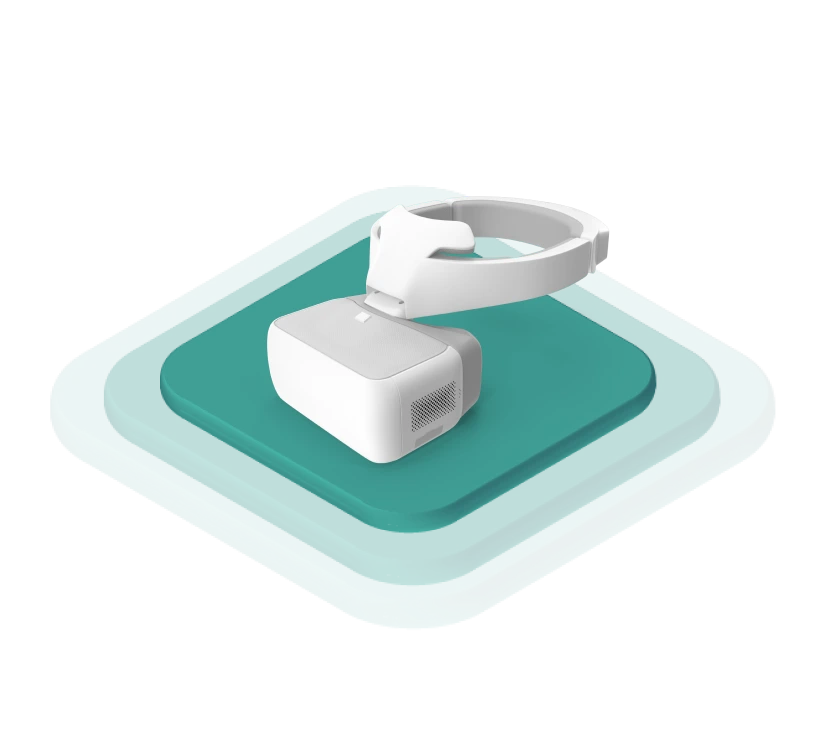
Fast and efficient debugging
Make crash capture and analysis for complex embedded devices easy and intuitive. Automatically collect crashes, logs, and custom data for every device in your fleet.
Lightweight footprint
Memfault works on any distro--including those built with the Yocto Project--and is designed specifically for embedded devices with consideration for battery, compute, and network resources.
Granular device-level data
Drill down into battery, connectivity, stability, or custom metric data on individual devices to see exactly what was happening with that device at a specific point in time.
Informed decision-making
Get all the data you need to make good development decisions in one place. Understand device health and product usage with built-in tools for prioritization, trend analysis, and more.
FEATURE
Robust Crash Monitoring
-
Capture and visualize coredumps
Understand and visualize a snapshot of memory from a specific point in time on a device when it experiences a crash, leading you to the root cause of the issue.
-
Identify rare production bugs
By sampling data from all the devices in your fleet, we can surface the ultra rare bugs that occur in production, which are nearly impossible to find and reproduce otherwise.
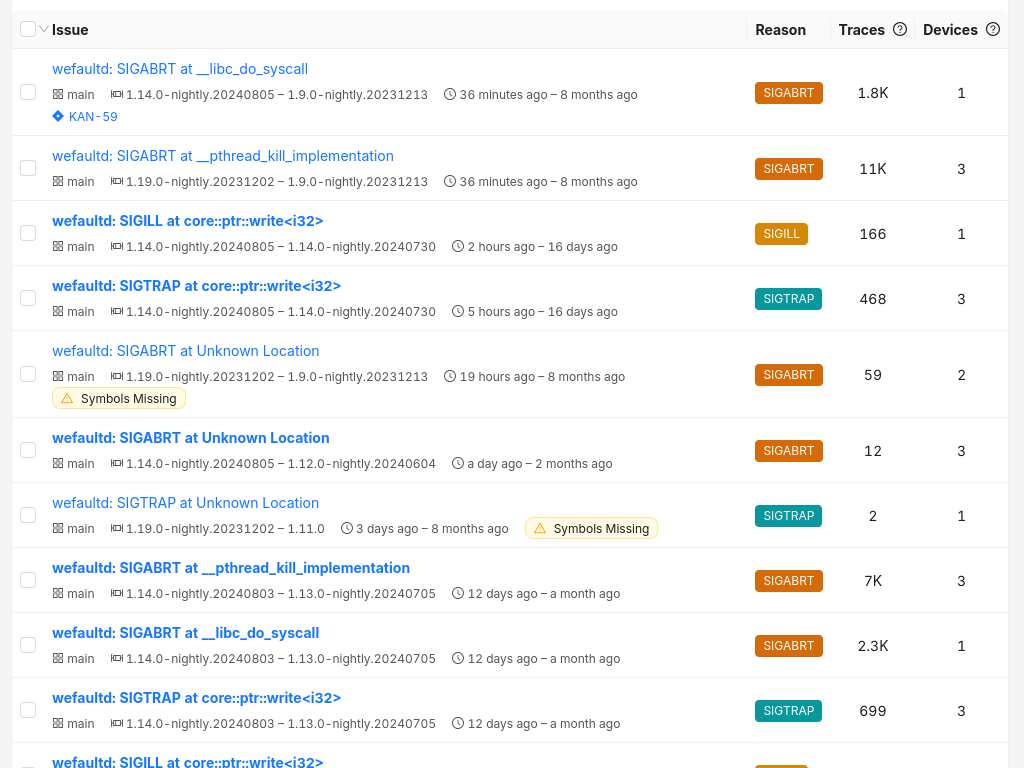
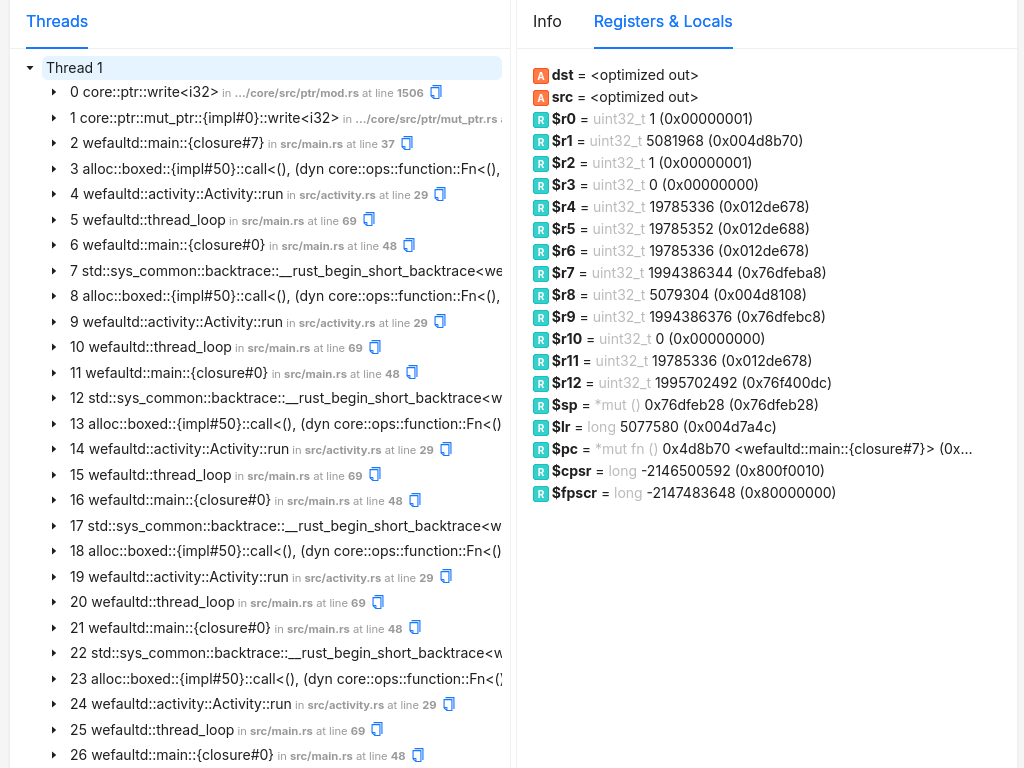
-
Crash de-duplication
Memfault automatically collects and prioritizes high impact issues and presents it to you in a digestible way, alerting you when there are urgent problems. Memfault also calculates the distribution of crash occurrences across software versions to help identify when bugs were introduced.
-
Continuous debugging
Every time a program crashes on a device, its state is captured and reported to Memfault for viewing and visualization. It’s almost like having a debugger connected to every device in the field.
FEATURE
Go Beyond Crash Data
-
Collect device logs from the time of each crash
Diagnose device issues with automatically collected logs prior to a crash to remove time-consuming and tedious guess-work when relating errors to logs.
-
Automatically collect device reboots
Uncover hidden issues by capturing all reboot occurrences and reasons across your entire fleet and extend with custom device specific reboot reasons.
-
Analyze fleet-wide metrics
Track high-impact KPIs across your entire fleet to spot trends, optimize performance, and reduce customer complaints, driving faster fixes and better business outcomes.

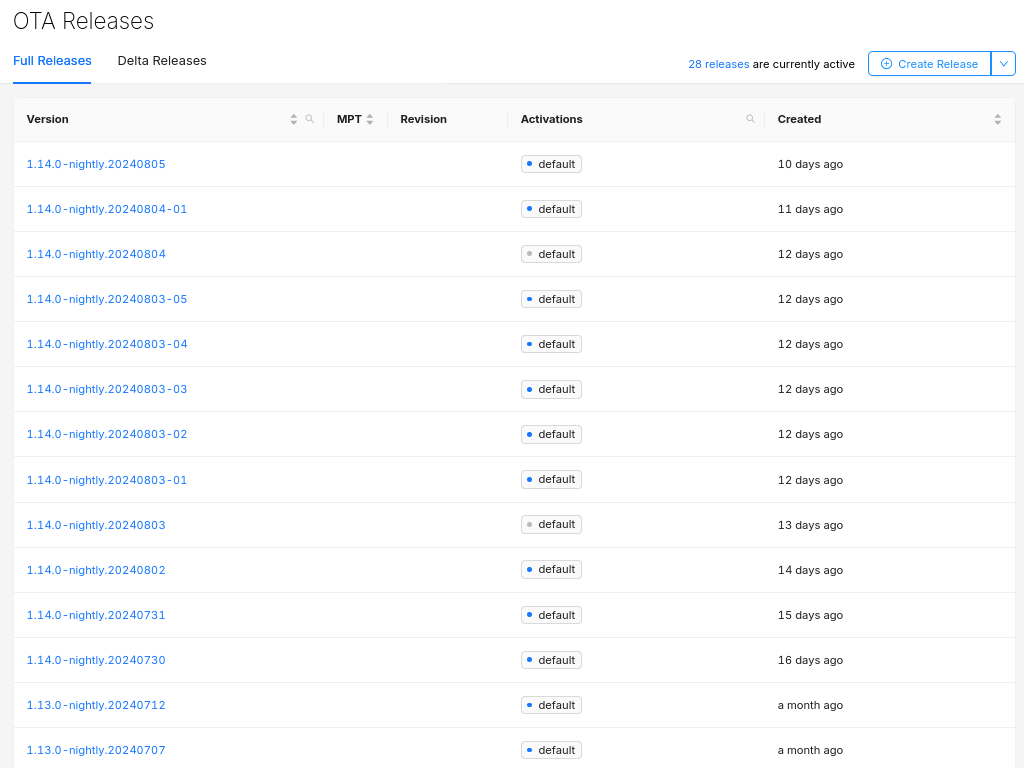
FEATURE
OTA Updates
-
Fully Customizable OTA Solution
Memfault hosts OTA assets and delivers them via a Global CDN for fast delivery wherever your devices are in the world. Devices query Memfault’s service for a download URL, and with it they can download the payload and boot into it however best suits your application. We’ll host your binaries and the rest is under your control.
-
Targeted Release Operations
Slice segments of your fleet into cohorts like alpha, beta, or GA, and deliver your OTA directly to those devices. Then, use those same segments to compare the current and historical performance of the devices against the rest of the fleet.
-
Easily Manage Updates
You determine when you want to send an update to your users whether that be while they are sleeping or not. To de-risk firmware updates, you can perform staged rollouts to see how a new version is performing before rolling out to the entire fleet.
-
Support for OTA Interfaces
Our Linux Memfault Daemon,
memfaultd, offers seamless out-of-the-box integration with A/B updates through the battle tested SWUpdate client, ensuring your fleet is updated in a robust and standardized manner. Additionally, we provide a hawkBit DDI-compatible endpoint, allowing for effortless compatibility with any hawkBit client.
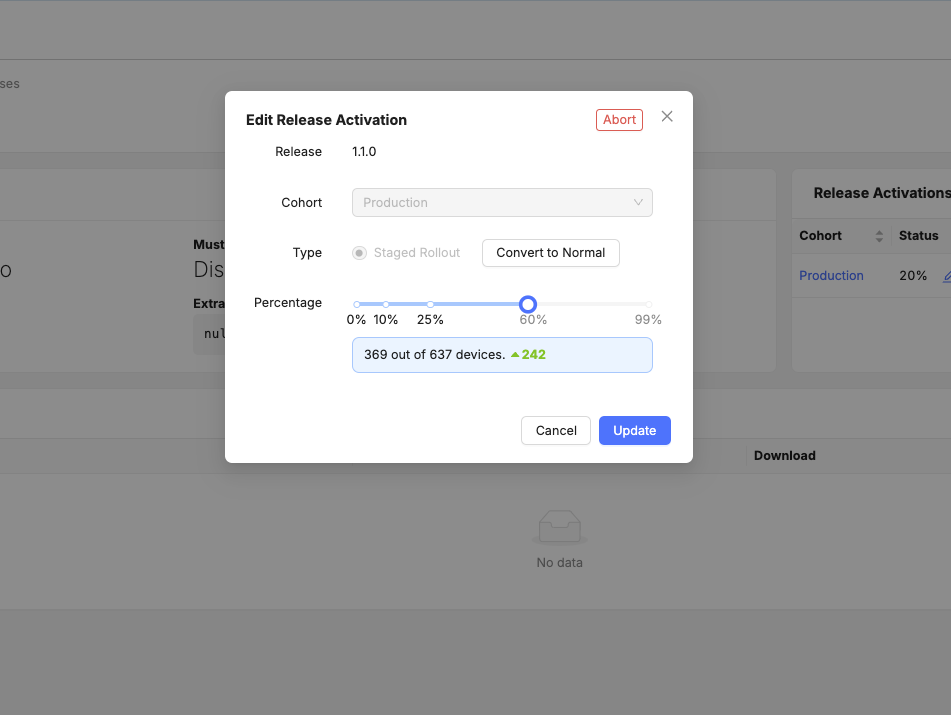

FEATURE
Point-in-time Data Visibility
-
Visualize device performance
See Device Vitals like the battery level, connectivity, temperature, and memory on a single timeline to analyze the performance of a device and answer questions, without combing through logs.
-
Historical data analysis
Answer customer support inquiries with confidence, augmented with historical data going back at least 2-weeks.
-
Customize for your unique use case
Add metrics specific to your product and analyze them on a per device basis or fleet wide.
FEATURE
Powerful Visualizations for In-Depth Fleet and Device Analysis
-
Collect and analyze device data
Collect device metrics out of the box or set up custom metric collection specific to your device use case.
-
Compare historical metrics
Visualize and compare metrics reported by the entire fleet over days and weeks to understand performance regressions between releases, or between hardware revisions.
-
Drive company-wide awareness
Easily share charts and reports with your team so that everyone is in the know.

Compatibility
If it runs Linux, it runs Memfault
Memfault supports a wide variety of distros and platforms. Our source available SDK is written in Rust and is efficient and portable--working on variety of systems without changing source code.

Minimal on-device footprint
Memfault's Linux Daemon, memfaultd (code style or bold), requires around 5MB of disk space and 5MB of RAM. It has little to no impact on battery life and performance, self-reports its usage, and can be adjusted to reduce its footprint.
Fine-tuned data collection
Get precise control over what information is collected from your devices. You are in full control of what data is collected with the ability to exclude sensitive data.
FAQs
Linux Resources

Webinar: Better Embedded Linux Monitoring and Debugging with Memfault
Watch this webinar to discover how to monitor and debug your Embedded Linux devices with Memfault.
Watch Now
Webinar: Over-the-Air Updates for Embedded Linux Devices
Watch this webinar to learn how to implement a secure and reliable OTA update system for your embedded Linux devices.
Watch Now
Interrupt: OTA for Embedded Linux Devices: A practical introduction
Read this Interrupt post as our Linux Tech lead discusses what is required to ship over-the-air firmware updates for Linux systems.
Read More